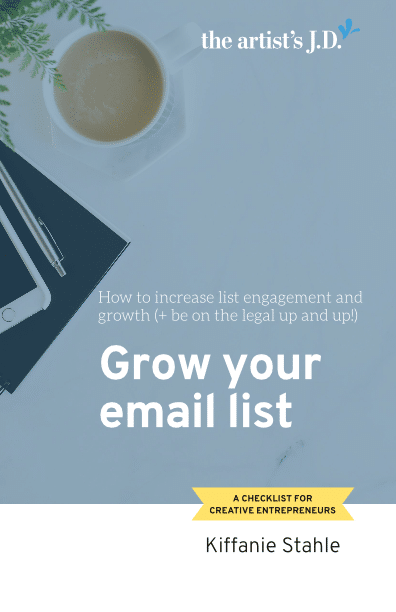Every month or so, I end up clicking on a link that takes me to LinkedIn. And when I do, I’ve got a gazillion notifications. Requests to connect from people I don’t recognize and don’t give me any context of how I might know them. Promotional messages from existing contacts. And then just down and out spam. I’ve never really dug LinkedIn and the fact it feels spammy every time I log in doesn’t endear me to it.
Spamming people on social media networks isn’t limited to LinkedIn. And I know I’m not alone in the frustration with spam on social media networks. In fact a couple weeks ago I had an exchange with Tara Gentile on Twitter about her frustration with people spamming her on Facebook.
And while it’s true that the CAN-SPAM Act does apply to these sorts of messages. The law only requires a few simple things:
- not use a false or misleading subject line
- give them the option of opting out
- identify your message as an advertisement
- provide a valid reply email address
- provide a postal mailing address
The law doesn’t prevent people from sending these kinds of messages, whether it is on Facebook, LinkedIn, or in our inboxes. They just have to give us the option of opting out and then honor our request. Even though these messages are not technically against the law doesn’t make them okay. We agree to abide by the social media service provider’s terms of service for the privilege of keeping our account.
The law doesn’t prevent people from sending these kinds of messages, whether it is on Facebook, LinkedIn, or in our inboxes.
But these kinds of messages are usually in violation of the terms of service with that social media service.
Social media rules on spam
 I’m probably one of the few people that reads and studies these and knows exactly what’s in them (which is why it’s great to have a friend who is nerdy about the law stuff). And because I know that you don’t want to dig in and parse these things out, here’s what each of these networks considers spam.
I’m probably one of the few people that reads and studies these and knows exactly what’s in them (which is why it’s great to have a friend who is nerdy about the law stuff). And because I know that you don’t want to dig in and parse these things out, here’s what each of these networks considers spam.
Twitter has a long list of things it considers spam including:
- following and/or unfollowing large numbers of people
- repeatedly following and unfollowing the same people
- sending large numbers of unsolicited @replies
- posting duplicate updates your account
- creating false or misleading content
Instagram’s policy doesn’t allow you to create:
- unwanted emails, comments, or likes
- commercial or harassing communications
Facebook has policies for both personal accounts and for business pages. If you are using your personal account, Facebook considers it spam if you contact people with unwanted content or requests. For example:
- sending bulk messages
- sending requests to people you don’t know personally
- excessively posting links or images to other people’s Timelines
On the Facebook business page front, you cannot create a page that:
- requires people to invite all their friends
- requires people to provide content in order to enter a promotion
- automatically enroll people in a promotion upon liking the page
- mislead or misrepresent your prize or promotion
Reporting spam
Luckily, all of these networks also have a function to report content and users that you find are spamming you. You can easily report spam on Facebook, Twitter, and Instagram.
I wish that we didn’t have to report. I wish that more people would think about how they would feel getting these messages before hitting send. I wish we lived in a world where the golden rule was how people ran their businesses. But we don’t live in that world. We live in a world where people send Facebook spam.
So share this with others and let them know that spamming you on social media isn’t okay. And take action and report spammers.
And maybe bit by bit we can make it a little more pleasant to log into our social media accounts.

Ready to grow your email list on the up and up?
Use this workbook to learn how to not only grow your list but increase list engagement!
Enter your email to download a workbook that will walk you through how to grow your list on the legal up and up. Plus learn the experiments I did to increase not only the size of my list but engagment!
Your privacy is important to us. Learn how we protect it here.



